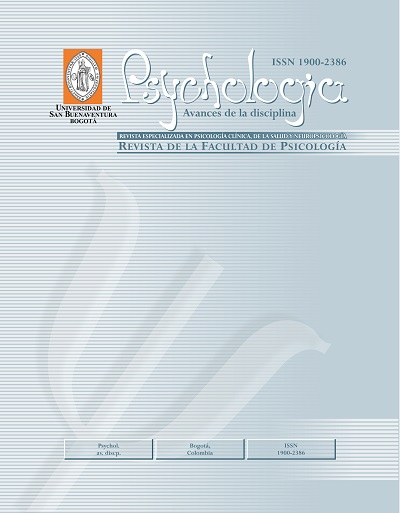This journal provides open, immediate access to its contents, based on the principle that offering the public free access to research helps to promote a higher global exchange of knowledge.
As such, all journal articles are published under a Creative Commons Attribution-NonCommercial-ShareAlike 4.0 International License (CC BY-NC-SA), by which commercial use of the original work or its possible derived works is not allowed, and the distribution thereof must be done with the same license elements regulating the original work.
http://creativecommons.org/licenses/by-nc-sa/4.0/
Abstract
Traditional sex roles have been modified along with social and demographic changes. The aim of the present study is to evaluate to what extent men and women are typified within a male, female, androgynous or undifferentiated role, in addition to analyzing the relationship between sexual role, positive and negative affect, and emotional intelligence. One hundred ninety three people between 18 and 60 years old participated (50.8% women). The results indicate that the expressive features show a higher positive relationship with emotional intelligence and with its dimension of emotional perception, while the instrumental features have the highest relationship with positive affectivity followed by emotional intelligence. Regarding the classification of roles, it is observed that the androgynous role, shows higher scores in emotional intelligence and positive affectivity than the other roles. In turn, the undifferentiated role shows the lower scores in emotional intelligence and positive affectivity than the other roles. In light of the results and background of other studies, it is concluded, in this specific sample, that the adoption of an androgynous sexual role in men and women has an important relationship with positive affectivity and emotional intelligence.





















